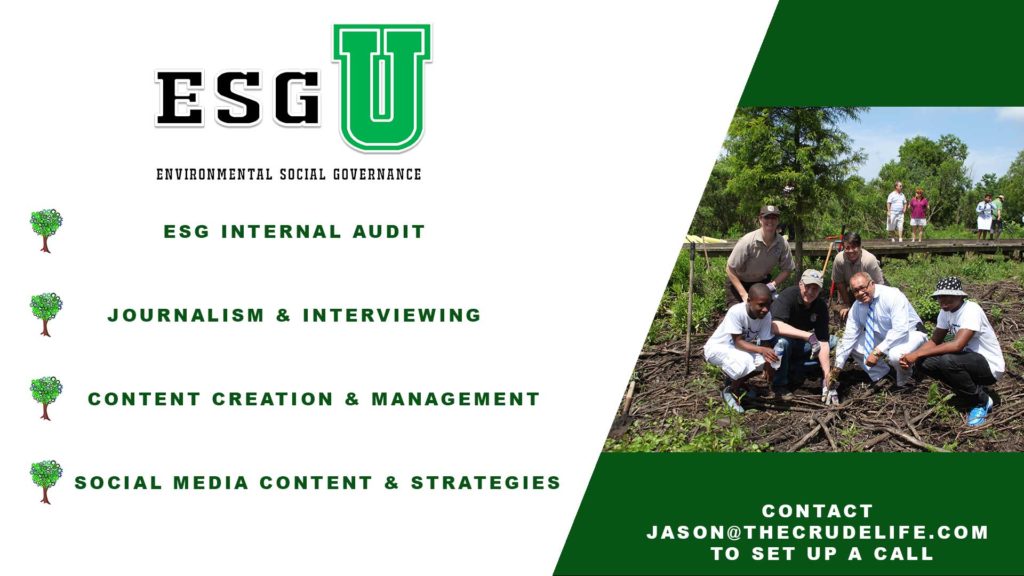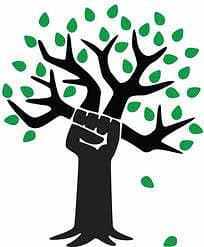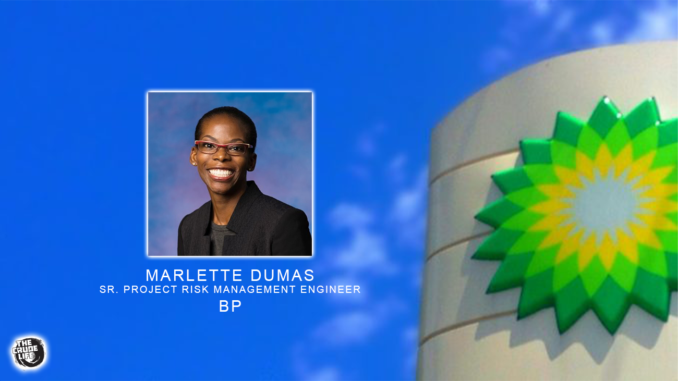
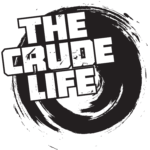
Marlette Dumas is a beautiful mind within the oil and gas industry and we had the opportunity to have a great conversation about how she got started, the journey, and her views on the direction for the industry among many other things.
We began at the beginning, where every good story begins and Marlette talked about how she was positively pushed toward math and science learning from a very young age. She continued in her desire to learn more in the STEM fields into college and passed when Marlette may possibly have been ahead of her time. She initially had wanted to venture into renewable energy, but that wasn’t a popular idea then. Plus, when Marlette was starting out, there were even less females in the industry than there are now. Even so, Marlette pushed forward and eventually began her career as a Facilities Engineer BP in Houston, TX.
“And I thought that renewables was the way to go at the time, but that was like 25-30 years ago and it hadn’t quite caught on yet. So I thought, I still wanna be in energy’ and that’s when I began to meet companies like BP and Shell and I just naturally graviated toward mechanical engineering on the projects side.” – Marlette Dumas
After finding a home working for BP, Marlette still had some struggles as a female in such a male dominated world. There were naturally some bumps along the way, but throughout the journey Marlette was able to grow her network and gain positive traction by working hard and doing her best. She did however talk a little about bringing a more “male” energy in the way she chose to dress and present herself in order to allow her voice to be heard – even though Marlette is a highly education woman in the field of Mechanical engineering.
“So I really had to just bring a mentality that ‘hey, just be present’ and try to put my ideas forward and put myself forward even though it was not in the environment that was welcome at the time. It was not very welcome but you still have to figure out how to dig deep and do it anyway.” – Marlette Dumas
It has gotten easier since the beginning of the journey and now Marlette is able to focus on what she likes best about her work within the oil and gas industry. Claiming the best part of what she’s learned so far has been leadership and critical thinking/problem solving abilities, Marlette also loves to analyze all the different facets of a project using the gathered information to solve the problems and create positive change. Lucky for us, Marlette gives us a look into her process and how she goes through gathering and processing the data.
Next we took a look at the industry as it sits right now and Marlette mentioned that it’s all going through a change right. More and more companies are looking to expand toward other forms of energy aside from oil and gas. As more technology becomes available and the conversation about renewable energy becomes more popular, we may see many more changes coming.
“People think that maybe oil and gas is not as attractive as it has been in the past, so we’re looking at other things now like renewables and things like that. So that’s coming on board, even though it may seem slow right now I think that it’ gonna be very, very important as we move forward.” – Marlette Dumas
In moving forward, there are many who may be worried that there may be a push to phase oil and gas out of our energy grid. Marlette, however, believes that we will be looking at more of a balance moving forward as companies make technological advances and other changes. Not just because the social trend is pushing in that direction, either; but also because it possibly may help heal the climate issues. However, because of social trends, there’s nearly demands a better balance.
On another topic, Marlette shared a little bit about a couple of organizations she is involved with. One of them, The Society of Petroleum Engineers, is a non-profit organization that stands as a wonderful resource for the Energy Industry. But all of the organizations that Marlette is involved in focus on helping others to learn skills, build connection, and become educated within the oil and gas industry. So, for any ladies who are interested in getting involved in the Energy Industry, Marlette has some advice.
“Learn as much as you can, while you can…. I’d say, the most important thing is to learn the industry. Learn it inside and out.” – Marlette Dumas
And for our energy workers:
“The work you are doing, it’s very, very important and it’s affecting people’s lives… just understand that we’re doing a very important job and it’s our responsibility to learn our job really well and do the best that we can even though we’re in a world that is changing everyday.” – Marlette Dumas
Interview and summary by The Crude Life Content News Correspondent Genneca Houser
Narrator
… Yeah, I think. … Mhm … Every March since 1987 Congress and the United States presidents have designated March as Women’s History Month. This year, the Crude Life celebrates and honors their accomplishments once again, along with their contributions in history, with interviews stories that center around women’s experiences in oil and gas and industry. The crude life supports women in industry since day one and will continue to months after this as well.
The crude life believes women are vital in energy today. More than ever from a female’s point of view to intuition to specific skill sets. Women are vital in energy. Today’s women and industry are not only modern day leaders but are truly defining history as well. Everyone here at the Crude Life is grateful for all your contributions to industry, to your communities and to our planet. Here is a fantastic interview with Marlette Dumas of BP. …
Genneca Houser
Good day to you. My friends and listeners today, we have a great opportunity to speak with Mar Let Dumas and she is down in Texas in the greater Houston area, I believe. Am I correct, Maar let, yes,
Marlette Dumas
Houston,
Genneca Houser
Texas. Very nice. Very nice. Well, thank you. For joining with me today. How are you doing?
Marlette Dumas
I’m good, thank you. Bright and sunny down here. Oh,
Genneca Houser
wonderful. I wish it was like that up in South Dakota where I’m at. But you’re, you’re down there working in the oil and gas industry and, uh, this seems to be something that you’ve been doing for quite some time and I’m feeling very excited. Why don’t we start at the beginning? Start with you. How, how did you get into the oil and gas sector?
Marlette Dumas
So at first, um just my parents always pushed us for math and science. We grew up in an area that was very mixed um racially. So they just thought, you know, what’s the best chance for our kids? And so they always just pushed math and science. So I can remember from very, very early on that, that’s the education somehow was just incredibly important.
And I belong to a group that now is similar to stem um T S T M but it’s now called STEM. And so just even when I was in high school, that has always been the thing for us. And my mom had introduced me to a physics laboratory run by the government and I was started out as a physicist and I didn’t want to be stuck in a room by myself all day. So eventually I, I changed my major to mechanical engineering and I thought that renewables was the way to go at the time, but that was like 25 30 years ago and it
hadn’t quite caught on yet. So I thought, okay, I still want to be an energy and that’s when I began to meet companies like BP and Shell. And I just naturally gravitated toward, um, mechanical engineering on the project side. So I’ve been doing it for quite some time and there were not very many women and definitely not many people of color, but I, I just, I started there and I just hung in there and, um, it’s probably gotten somewhat better, of course, over
the years, but that’s how I got started. Um, as a project engineer, a facilities engineer actually with DP here in Houston, Texas. And I’ve been doing that ever since I was,
Genneca Houser
it was, it, was it difficult getting taken seriously in such a male dominated industry in this?
Marlette Dumas
Yeah. So at first I think they were doing it because they were really trying hard to diversify their workforce. And some people might have said things like, you know, they hired you because you’re an African American woman or whatever. But my father always told me, hey, it doesn’t matter right back then anyway, they said it doesn’t matter how you get in, just make sure you do a great job once you get there. And so that’s how I started.
Um I started there when I think they hired us at the time, three black women and it was good um lots of bumps along the way but um also form some networks with other people on just how to do well and get through each day and meet the challenges today. So at the time I was doing some deep water projects um just um bringing them on and with design and um just through the like a stage gate process to bring projects online.
Genneca Houser
Wow. Has it, has it gotten better than since then?
Marlette Dumas
I like to think so because now I see more people that look like me. Um I am a petite woman so that two played into it quite a bit. Um It’s, of course, it was very much a male dominated world still is, but it’s, it’s getting better. But I think that back then I was just trying to figure out how to and now I don’t encourage anyone to do this, of course, but back then I was trying to figure out how to fit in.
So I would wear pantsuits to work or um things like that to try to make myself feel and look more like what they were looking like or yes, I took on more of a masculine persona at times. Um Sometimes I would speak up in meetings sometimes I wouldn’t just depending on if they were gonna maybe cut me off mid sentence or something.
So I really had to just bring a mentality that hey, just be present and tried to put my ideas forward and put myself forward even though it was not in the environment that, that was welcome at the time. It wasn’t not, not very welcome, but still have to somehow figure out how to dig deep and, and do it anyway. Right.
Genneca Houser
I can only imagine how difficult that might have been for you. Absolutely. Uh, especially with as much education as you’ve gotten. It appears that you are very well educated.
Marlette Dumas
So, so my parents message really, really um sank deep with me. I, I really just grabbed onto that. Um I have both my bachelors and masters in mechanical engineering from Illinois Institute of Technology in Chicago where my heart is and uh University of Colorado in Denver for my masters.
Genneca Houser
Wow, that is awesome. So, what is your favorite part of being involved in the oil and gas industry? What’s, what’s the favorite part of your education
Marlette Dumas
that you get to use every day? So I wouldn’t say that I get to use a lot of the technical things every day. I think that that’s part of it if someone chooses to go that route. Um I went more into the project management and risk management side. But if you ask me, what would I say is the best part of it. I think that when we’re in engineering school and we’re working with students who are also some of the best in the world or they’ve been brought up to, to understand that they need to be the best
in the world. It really teaches us how to think, so how to solve problems, how to process, how to make decisions, how to guide people that are, how to be an influencer, how to guide people who are making decisions into making the right decision or the best decisions. So the technical things aside, it’s more so how to lead and how to influence and how to direct.
And that’s something that I mean, probably you can get that in a lot of different ways. But I felt like engineering school really does teach how to solve problems, critical
Genneca Houser
thinking and problem
Marlette Dumas
solving. Very much so. Yes, very much so, I
Genneca Houser
love it. Actually, I can’t even because I, I would like to think that I’m fairly good at critical thinking and problem solving, but I, I don’t, oh that, that seems like a very tough job to me. Seems like there that there might be so much involved. How exactly do you analyze the different aspects?
Marlette Dumas
Gosh. So I think it’s a multi step type approach for me. One is, is very, very early on, I would say, learn who’s who the players are, who, who, who are you solving the problem for? Where are the resources, who can I go to for information if it’s something that I’m not already really familiar with? So just know who the players are and then how to gather information pertinent information.
Like is this important, is that important where to go to get that information, who I need to talk to and then sorting through, through it all. I mean, sometimes you’ve got some information that may not be important at all. And then some, some of it is, is the definite needle in the haystack kind of thing. How do you find that? So that I would say is part of it and then how to present once I’ve made a decision or, or I think I’ve found the answer are I’m looking at the software or whatever.
Um How do you, how do I present that to the people that are going to make the decision? So that too is important. Like what, what will they be most receptive to? And if it’s nothing that I don’t think they’re gonna be receptive to, how do I couch it in a way that they will say? Uh huh. Yes, I understand how we, how this might be a better direction. So for me, it’s, it’s more of a process. It’s probably four or five steps, but that’s how I do it. Wow.
Genneca Houser
I was gonna say that’s, that’s really interesting. That’s, that’s not even just crunching numbers as much as it’s also incorporating and it sounds like human behavior and uh and, and other and other outside information, I couldn’t help but thinking how nice it would be if more, more journalists would do that amount of research to.
Marlette Dumas
Yeah, they probably do. But, yeah, that that’s true.
Genneca Houser
Oh, some of them absolutely do. I
Marlette Dumas
can’t, I couldn’t imagine what it would be like. I,
Genneca Houser
right now it’d be a high pressure job, that’s for sure. Although, right has, has the pressure grown in Texas since, uh, well, since mid January and, and then of course, that cold snap, have, have things been changing for you down there?
Marlette Dumas
So, so, yes and no, I, I think what really caught us was the storm, right? But, um, as far as folks working from home and things like that, yes, that’s still ongoing. But, but like I said, some of them are, are starting to come back and some of them were working from home already on some type of limited basis anyway. But yes, I think the, the pressure is, um, the industry is going through a change right now.
Right. So we’ve got, um, people think that maybe oil and gas are, are, uh, is not as attractive as, as it has been in the past. So we’re looking at other things now like renewables and, and things like that. So that’s coming on board, even though it may seem slow right now, I think that it’s gonna be very, very important as we move forward. So a lot, the larger I’ve only, I’ve only worked for, I should have said this earlier.
I’ve only worked for large operators, right. So they’re starting to change some of their, their ways of thinking on what might be a way to go in the future. So maybe not so much petrochemicals, maybe more renewables or what they could get into. Um like for example, electric cars is becoming a thing, right? So what can they do to try to take part in that new direction that our society is that we’re going as a society?
So even things like, I don’t want to bring up political things with things such as like global warming and things like that. So we’re trying to figure out what, what we want to look like as a leader still in the industry, even though things are starting to change.
Genneca Houser
Yeah. Well, that makes sense because like you said, there, there are quite a lot of changes and I’m sure that there’s going to be quite a lot more throughout the rest of the year. I mean, we, we only just made it out of February, right? So I guess kind of a big question. Excuse me, a big question that a lot of people are wondering is where, where are things going to be going from here?
Do you think that this is going to constitute kind of a cut down on, on oil and gas itself or do you think it’s going to bring about more of an integration and a balance between renewable energy in the oil and gas industry? I know that Texas kind of prides itself on that balance.
Marlette Dumas
Yes. So I’ve been in Texas now about 25 years and I’ve seen it go from where it was heavily oil and gas, where it really was the number one industry here. And we are a world leader, um not just leader in the U S but world leader as far as almost like a headquarter type situation. Now, Houston itself has taken on many other industries as kind of a headquarters.
Right. So you’ve got health care and things like that down here now and then oil and gas, the industry itself, energy, energy, the energy industry itself has started to change. So I am going to say yes, it’s a funny thing when I think sometimes it’s just really ironic, I used to pull into the office and I would see some of my colleagues driving electric cars and things like that.
And I’m like, how do you work for a large oil and gas company and role in an electric car? So, I mean, even us, I mean, even in our, in our circles, we can see that things are changing. So would you say it’s going to be somewhat of a blended type situation? I say very much. So, yes, even though the profits with the numbers that they’re looking for right now may not be there. I think that society is going to push us or at least make us strongly consider how to make that type of energy more
profitable or more attractive. Um We sure we’re going to have enough to last for many, many years. But I think now that they’re trying more okay, what else can we do? What can we do differently and still stay in the good graces of, of society? So I think that they’re almost being forced to be more of a blended type um, industry in the, in the energy industry. When I say I’m not talking just oil and gas and energy in general. Yes.
Genneca Houser
Right. I mean, do you, do you see this being kind of a pause? I mean, is it actually helping, I guess, is the real question is do you think that, um, moving to a more blended industry will actually help the issues that are being brought up by the climate? I mean, or do you think that this is just kind of just where society seems to be shifting to?
Marlette Dumas
I think both, I think both there are a lot of people who are paying attention to what they’re doing. Like you may notice people are recycling more whatever. So those people are learning what it means to care more for the environment. So they’re almost wanting to see that. But at the same time as a company they have there, Their shareholders, their stakeholders, there, there are other affiliations or
relationships and they need to please those people too. So there that blend is going to come regardless. And I mean, it may not be 5050 anytime soon, but it is coming. Certainly. Yeah.
Genneca Houser
Well, I guess that actually kind of brings me to another thought, you know, in speaking with, for example, Governor Doug Burgum, he had mentioned a whole bunch about uh carbon sequestration. Um and, and using coal, actually, Governor Mark Gordon had mentioned that too in Wyoming, do you think that Texas is going to take a focus on coal to begin in with?
Or do you think that it’s gonna be more of a focus specifically on like the solar and, and wind turbine energy for right now or, or I mean, I guess back to that balance, there’s
Marlette Dumas
options. So something clean for sure. I mean, something clean for sure because they want to try to stay, they want to try to be as um respectful to the environment as possible. But yes, I I don’t really know much about coal. Um So I can’t really speak on that, but I do know that companies at the end of the day, at the end of the day, they’re go, they’re responsible for answering to not only our government and things like that entities like that, but they also have their shareholders,
their stakeholders and people that they their, their bottom line. And so they sometimes they really do have to follow, they have to follow in that direction. Um but but do it as cleanly and neatly as possible. So I see, I see you mentioned solar. So I see things like solar and wind creeping up but at the end of the day, they still have to stay afloat as, as a business. Right. So that’s, that’s kind of where I see it
Genneca Houser
well, and I know that there’s, I mean, obviously there’s multiple options when it comes to, to energy and where we get our energy from. Um, I keep forgetting that nuclear is even a thing. And nuclear, we were
Marlette Dumas
just, we were just, I was just having, I was just chatting with a long chat actually with a colleague yesterday about that. And yes, I do see now the U S right now. Okay. Maybe not, not as much as a big player, but I do think it’s coming.
Genneca Houser
Mm, I have reservations about, about nuclear energy. It’s a lot of power which could be very, very good, but it could be very, very bad
Marlette Dumas
too and it could be very bad, you know. Exactly
Genneca Houser
scary but really
Marlette Dumas
cool. I mean, I don’t know if you’ve explored much into like geo geo thermal. Um There’s this other, other sources. You’re right. It’s a big, there’s a big playing field.
Genneca Houser
So do the businesses that you work with, do they work in the geothermal energy realm?
Marlette Dumas
So, no, not right now, the work I’m doing, I’m doing volunteer work right now for the Society of Petroleum Engineers here in Houston. And um so they too have even started to change their um their, the way that they run their organization. So it’s now professional professionals and energy. Um, so I would say yes, there is a change across the board. Absolutely.
Genneca Houser
So, well, yeah, I mean, I guess we’ve, yeah, we’ve been talking for a little bit about all the changes, we know, we know more changes are going to be coming. But, and it’s so hard to predict with, well, with so many variables.
Marlette Dumas
So, the thing I also see is a lot of the folks that have been in the industry a while, some people might call them seasoned oil and gas, folks, they, that’s all they’ve known. They’ve been in it for 2030 years. They just happen to, were able to stay in the industry. And I think they’ll, they’re gonna hope that things stay, that they can stay in oil and gas until their retirement, which should be, you know, relatively soon.
But some of the people that are new, like, say those who have less than 5, 10, 15 years experience, they’ve grown up in the industry knowing that there are other options for energy sources. And so I think they’re going to be more comfortable, we’ll use, work comfortable with changes of where we source our energy from. So I think for them it will be okay that it will be fine.
Genneca Houser
It’s, it’s just kind of an interesting, I guess, uh, to watch the shift, the mindset shift. But that actually, that makes a lot of sense.
Marlette Dumas
Yeah. So that’s what I, what I’m saying, that playing into the mind shift or even the mindset. Right. Um, some of them are like some of the students that I work with now. They’re okay. They’re, their minds are more flexible. They’re more, oh, yes, I see how that’s better for us. I see how it’s better for the environment. We can still get close to our numbers and they’re more, they’re more agreeable to understanding that. Yes, this is the direction we’re going.
But when I talked to some of the folks that have been in the industry, like me for, you know, fairly awhile anyway, they don’t want to see oil and gas go. They think that that’s there. It’s been, I don’t wanna say cash cow, but it’s been bread and butter for so long that, that’s, that’s what they’re there as well and, you know, I’m retiring in five years so hopefully I can write it out, you know. So it’s that kind of thing. Well,
Genneca Houser
it’s interesting too because I’ve actually been hearing quite a lot more about how our oil and gas industry is actually much more clean and environmentally friendly than the population would like to actually give credit for that. They, that they know about, I guess to, you know,
Marlette Dumas
so lots of things have come into place from the government. Like, can you remember things like sometimes folks talk about, used to talk about flaring or maybe they still, like for now they still talk about fracking. So those things are things that we hear and see on different media. Right. Um, what they may not, what, what society may not be so aware of is the steps that we’re taking to make things better.
Um, so you don’t see a lot of that anymore where there, where people were oil and gas companies, maybe, maybe not respecting the environment as much as, um, they had in the past. So now they’re being more, um, a lot of our practices are now more um, stringent or we’re not allowed to do that or we’re only for certain periods of time or something like that.
And those, those steps. So even though those stuff seems small, those and some of them are big, actually, they don’t get, um, they don’t make time, they don’t get airtime. So people don’t get to see that we’re making those changes.
Genneca Houser
Right. Well, that’s something that I had noticed as well. Um, do you, does, is now, is this a factor, is this something that gets taken into account as you are assessing the different projects as well as how, you know, what, what steps have been taken to be more environmentally friendly when it comes to the project?
Marlette Dumas
Yes. Yes, very much so. So as a risk manager, which I’m no longer a risk manager, but back when I was, um, we would, we have different, different components of the project that we assess and one, one of them and it always is. So, is safety and environment. We always seek out what could be the risk and how do we weigh them? Like how do we mitigate them? How do we assess them? And then what do we do to, to actually just lower or completely remove that risk entirely?
What can we do differently to remove that risk entirely? So, yes, absolutely. And I’m talking about environmental risks and I’m talking about safety. So when I say environmental things that have to do with the environment or the air we breathe or whatever, uh and is it, is it a risk? And how do we, how do we mitigate how to remove it? And, and what do we do if it does happen? What, what, what’s our response? So, yes, absolutely. So. Right.
Genneca Houser
Well, and then I guess I was kind of wondering too how much, how much accountability is there for the companies when it comes to these projects to be environmentally friendly or to try and take those steps to be as environmentally friendly as possible or?
Marlette Dumas
Well, there is, yes, I agree with you. There is accountability sometimes even at a government level, like maybe there’s a fine that might be a set and then even like I mentioned earlier for a shareholder, stakeholders type people, um they need to know that we’re behaving in a certain way and they don’t, if we’re not, then they’ll move on to, to invest in someone else.
So, absolutely. There’s accountability in that regard and then even at the, at the project team level, um, they, we don’t like to do finger pointing, of course, but we work as a team to try to do what’s best and were held accountable even within our own small groups to try to do, make the best decision.
Genneca Houser
Nice. Yeah, see, it just, it just kind of seems like these are the types of, this is the type of information, I guess I should say that doesn’t generally get put out there because the oil and gas industry is, is made to look so, so awful. And so I, I hadn’t even brought it up to talk about before, but I guess I have been wondering about the different levels of accountability and consideration when it came to that. Um, so that’s, that’s the
Marlette Dumas
spectrum. I would say it’s a spectrum. So there’s always going to be some type of a governmental, um, policy or we need to follow this, uh, rule. And so there’s fines and then of course, we don’t want to want to have to get stuck with fine. So there’s always that all the way down to the smaller things, you know, like maybe there’s a person who doesn’t want to sit on a particular team because they’ve decided to take this direction so that personally choose to work on a different project
team. And like I said, it’s all, it all boils down to relationships that they want to be affiliated with a team and a set, a set of people who have this type of thinking, um, that we wanna do, do things right and respect the environment even though we’re in oil and gas. So, yes. Yeah, I’ve seen some people make decisions. Like I have a girlfriend. Um, she decided to go with a company that does that wind turbines.
She’s been oil and gas ever since day one, just like me. But, um, she may decide to, you know, she still wants to be an energy, but she’s decided to take a different route mostly because, and mostly because of accountability, she doesn’t want to be the person who’s on the team that that’s um not respecting our environment and things like that.
Genneca Houser
Well, that’s not, that’s not a bad mindset to keep either, especially when the consideration that you’re taking is specifically for other people. I’ve, I’ve heard different, different things about the wind turbine technology. Um It’d be, I don’t know, it’s so it’s, it’s, it’s kind interesting seeing the differences between all of them. I, I obviously am not a professional within the industry.
And so I get to, I’m lucky in the way that I get to hear firsthand, a lot of information only because I have this awesome opportunity to speak with really cool people like you. So I’m very, very much appreciated actually talk Texas Oil had recommended that we get into touch with you because of all of your extensive background within the industry. So very excited about it. Yeah,
Marlette Dumas
thank you. Yeah, I like working with her. She’s an awesome person.
Genneca Houser
Yeah, I guess I’m still kind of new to doing this with the crude life. So, I don’t know too much about talk Texas Oil or the petroleum association that you are involved in either. Oh,
Marlette Dumas
yes. Society of Petroleum Engineers or? Well, that’s its former name anyway. Um, yeah, so that group, even though it’s called Society Petroleum Engineers, at least up until just recently. Um It’s, it really is more um it’s not just petroleum engineers, there’s almost everyone from every area of oil and gas. So we have G and G and um gosh, we have facilities engineers, pipeline.
We have a lot of different folks but it’s a good um resource. We have of course classes and seminars and all those types of things. Um So people can study other parts of the industry within our organization. Um And then we do things like hiring events, which we have one coming up uh in early April. Um So it’s a, it’s just an outstanding resource for people, everyone in the oil and gas and, and now we’d like to say the energy industry because we’ve opened it up to renewables. So, yes, it’s
a really good resource. And um the other organizations that I’m in, they too, even though some of them are for women, like women’s energy network and things like that. They too are, um, very inclusive as far as, I mean, yes, it began with a group of women that were in the oil and gas industry were trying to figure out how do we manage our way through? Um, being very minority. Um, but that too is another excellent resource for women. Um, and oil and gas definitely
Genneca Houser
sounds like. What, what kind of advice do you think you’d have for any ladies who might be listening and are considering getting into the oil and gas industry or into the energy industry in general, I guess.
Marlette Dumas
Okay. Uh So first of all, I say, just learn as much as you can while you can. That’s, there’s a learning curve that is there and it’s, it’s steep, right? They don’t, if you’re not a petroleum engineer, they don’t teach this in school, right. So it’s pretty steep align yourself with the right people, a mentor or someone who’s been in the industry a while that maybe there’s a person who, you know, that’s in the industry that definitely align yourself with them and build a great
relationship, learn how to build relationships. That’s another key thing. Um But I would say it’s, it’s, I wouldn’t say it’s competitive, it is competitive, but that’s probably not the most important thing. I’d say. The most important thing is to learn the industry, learn it inside and out, learn, learn their job, inside and out because almost every moment counts.
It’s almost like a pressure cooker. Um When I go in, in the beginning of the day, there’s already problems still left over from yesterday. So you’re really working hard to cram as much into one day as possible. Just learn how to do that. So time management, how to solve problems and, and learn what you learned the job really, really well, the industry is so complex.
Um You asked me earlier about why would I have even chosen oil and gas? I chose it because the risk for, I’m upstream. Right. I’ve done a little bit of everything, but I’d say upstream, especially the risk that and when I say risk, I mean, being able to push like technology and things like that, deep water or length of a pipeline or something like that where it’s never been done before, align themselves with someone like that, who knows who has a history or some experience with how
challenging the industry can really be and how to solve those tough problems and that it’s okay to learn how to take calculated risks, things like that, that’s what’s gonna set the difference. Um Just understand that that is the tone that’s always going to be the tone. Um Just be willing to work hard to be able to work in that type of an environment where it’s just high pressure almost every day.
Genneca Houser
Nice, be prepared to, to work on your motivation and perseverance. In other
Marlette Dumas
words. Yes. Yes. And the other difference, I’d say, in other parts of the energy industry, some of um some companies work in, in, let’s just say hundreds of thousands of dollars or maybe a few million dollars. But if they’re going to work with like an operator, someone that’s a world leader has the largest project X project in the world. They’re going to be working on projects that are billions of dollars, right?
So sometimes 678 $10 billion. So I understand that, that it’s sometimes it’s not even the size of the project that matters, but just understand that we’re talking real money here, more money than some people will ever see in their lifetime. But these projects are, some of them are really, really big dollar and there’s always safety involved, there’s timing involved, schedules cost all those things and if it’s, it’s there, we’re losing a few $1000 in some parts of industry.
That’s no big deal. But when you’re talking about millions of dollars, that’s a big deal. And we’re responsible for that, right. The project team members that might have a piece of the project that they’re responsible for, that’s X millions of dollars. So be able to understand that, hey, the, the work that you’re doing is very, very important and it’s affecting people’s lives. When we flip that switch, we expect power to come out.
When we go to the gas station, we expect. So just understand that we’re doing a very important job and it’s our responsibility to learn our job really well and do the best that we can, even though we’re in a world that’s changing every day. Yeah. Just, just keep learning and, and stay on top of, stay on top of what they need to know for the, for their role and the project and the company in general.
Genneca Houser
I love it. That’s brilliant advice. Probably for any industry, but I love it. That’s brilliant. Thank you. Thank you so much for taking the time to talk with me today. Marlette. I very much appreciate it. Sure.
Marlette Dumas
Thank you. It’s been a pleasure.
Genneca Houser
Absolutely. And I hope so. I hope at some point I might be able to talk to you again. You never know. Of
Marlette Dumas
course. Absolutely. I’ll be right here. Well,
Genneca Houser
um, is there anything else that you would like to add? Any, any? Well,
Marlette Dumas
happy, I know I’m a day late but happy International Women’s History Day, uh, to the women that are there and all the great work that they’re doing. Thank you for the work that you’re doing. Um, we’re getting there, we’re, we’re really getting there. I
Genneca Houser
think so. I think good things are coming. I do. I truly believe that good things are going to be around the corner and, and it’s gonna look up, it’s gonna be great.
Marlette Dumas
Absolutely. So, thank you.
Genneca Houser
Well, thank you. Have a wonderful rest of your day and I look forward to in the future when we do get to speak again.
Marlette Dumas
Likewise. Thank you so much. Have a great
Genneca Houser
day. Alright, my friends that was Marlette Dumas and she is a brilliant mind in the oil and gas industry has been for quite some time. And if you enjoyed listening to what she had to say, make sure that you go check out the rest of what the crude live dot com has to offer.
…
Narrator
ladies and gentlemen, let’s give it up for Alma Cook.
Click on picture for America’s Crate! Check out these Amazing American Environmental Entrepreneurs! Don’t forget that the promo code OTIS unlocks big big savings!
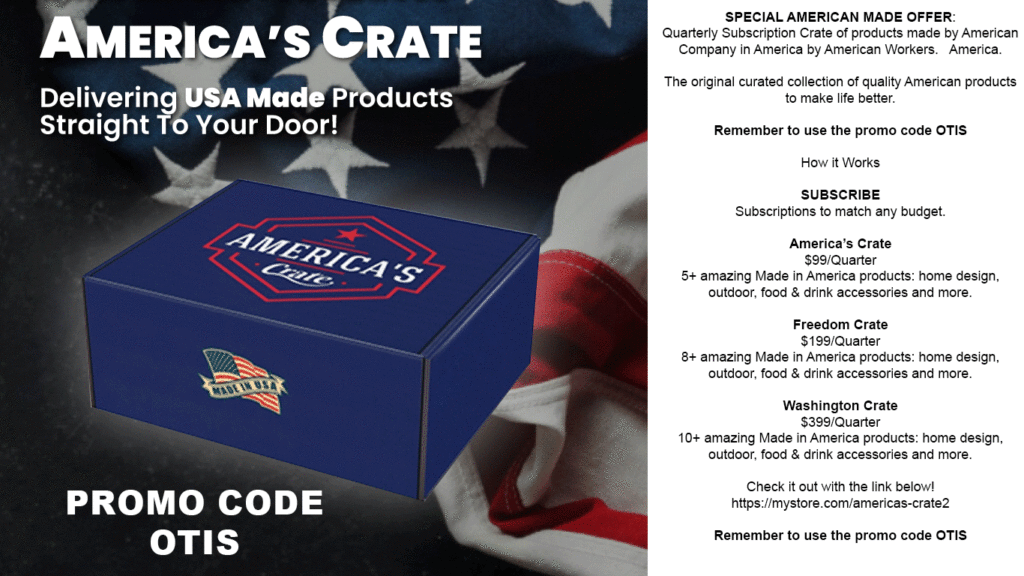
Submit your Article Ideas to The Crude Life! Email studio@thecrudelife.com
About The Crude Life
Award winning interviewer and broadcast journalist Jason Spiess and Content Correspondents engage with the industry’s best thinkers, writers, politicians, business leaders, scientists, entertainers, community leaders, cafe owners and other newsmakers in one-on-one interviews and round table discussions.
The Crude Life has been broadcasting on radio stations since 2012 and posts all updates and interviews on The Crude Life Social Media Network.
Everyday your story is being told by someone. Who is telling your story? Who are you telling your story to?
#thecrudelife promotes a culture of inclusion and respect through interviews, content creation, live events and partnerships that educate, enrich, and empower people to create a positive social environment for all, regardless of age, race, religion, sexual orientation, or physical or intellectual ability.
Sponsors, Music and Other Show Notes
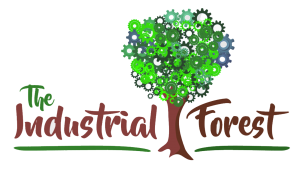
Studio Sponsor: The Industrial Forest
The Industrial Forest is a network of environmentally minded and socially conscious businesses that are using industrial innovations to build a network of sustainable forests across the United States.
Weekly Sponsor: Stephen Heins, The Practical Environmentalist
Historically, Heins has been a writer on subjects ranging from broadband and the US electricity grid, to environmental, energy and regulatory topics.
Heins is also a vocal advocate of the Internet of Everything, free trade, and global issues affecting the third of our planet that still lives in abject poverty.
Heins is troubled by the Carbon Tax, Cap & Trade, Carbon Offsets and Carbon Credits, because he questions their efficacy in solving the climate problem, are too gamable by rent seekers, and are fraught with unreliable accounting.
Heins worries that climate and other environmental reporting in the US and Europe has become too politicized, ignores the essential role carbon-based energy continues to play in the lives of billions, demonizes the promise and practicality of Nuclear Energy and cheerleads for renewable energy sources that cannot solve the real world problems of scarcity and poverty.
Look at what’s happened to me.
I can’t believe it myself.
Suddenly I’m down at the bottom of the world.
It should have been somebody else
Believe it or not, I’m walking on air.
I never thought I could feel so free-e-e.
Barterin’ away with some wings at the fair
Who could it be?
Believe it or not it’s just me
The Last American Entrepreneur
Click here of The Last American Entrepreneur’s website

Studio Email and Inbox Sponsor: The Carbon Patch Kids
The Carbon Patch Kids are a Content Story Series targeted for Children of All Ages! In the world of the Carbon Patch Kids , all life matters and has a purpose. Even the bugs, slugs, weeds and voles.
The Carbon Patch Kids love adventures and playing together. This interaction often finds them encountering emotional experiences that can leave them confused, scared or even too excited to think clearly!
Often times, with the help of their companions, the Carbon Patch Kids can reach a solution to their struggle. Sometimes the Carbon Patch Kids have to reach down deep inside and believe in their own special gift in order to grow.
The caretakers of Carbon Patch Kids do their best to plant seeds in each of the Carbon Patch Kids so they can approach life’s problems with a non-aggressive, peaceful and neighborly solution.
Carbon Patch Kids live, work and play in The Industrial Forest.
Click here for The CarbonPatchKids’ website

Featured Music: Alma Cook
Click here for Alma Cook’s music website
Click here for Alma Cook’s day job – Cook Compliance Solutions
For guest, band or show topic requests, email studio@thecrudelife.com
Spread the word. Support the industry. Share the energy.

